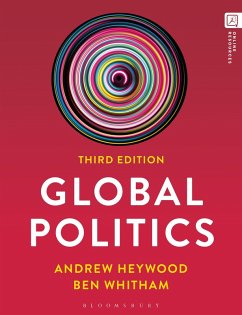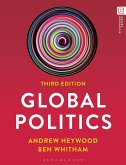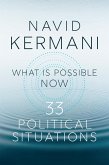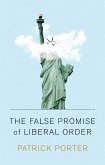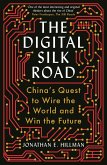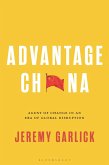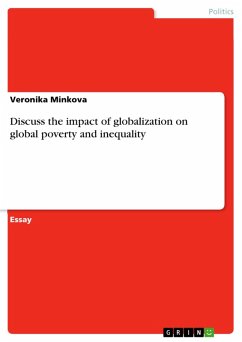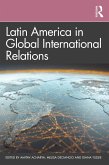In turbulent global times, your study of this subject is increasingly necessary and urgent.
Featuring a new chapter on critical theories, and revised to take a less Eurocentric approach to concepts and case studies, this new edition allows you to tackle global politics' important concepts, debates and problems:
-How can theories help us to understand the politics of a global pandemic?
-Do we live in a 'post-truth' world of 'fake news' and disinformation?
-Does international aid work?
-Does the United States remain a global hegemon?
-What is the Anthropocene and how does it shape global politics?
-Are global politics constrained by a 'North-South' divide?
-What are the possible futures of global politics - and the politics of outer space?
Delving into topics as diverse as anarchy, intersectionality, Confucianism, and neoconservatism, boxed features give you confidence in political analysis:
-Focus on: learn more about the global colour line or the tragedy of the commons
-Key figures: discuss the ideas of Hans Morgenthau, Frantz Fanon or bell hooks
-Debating: argue whether the United Nations are obsolete, or whether nuclear weapons promote peace
-Global politics in action: apply your learning to the migration crisis in Europe or the Arab Spring
-Approaches to: consider human rights or the Covid-19 pandemic from the perspective of realist, liberal, postcolonial, Marxist, feminist, constructivist and post-structuralist theory
-Global actors: understand the significance of Black Lives Matter, Amnesty International or the International Monetary Fund.
Spanning the development of global politics, from the early origins of globalization through to the return of multipolarity in the twenty-first century, this is an essential text for undergraduates studying global politics and international relations.
Featuring a new chapter on critical theories, and revised to take a less Eurocentric approach to concepts and case studies, this new edition allows you to tackle global politics' important concepts, debates and problems:
-How can theories help us to understand the politics of a global pandemic?
-Do we live in a 'post-truth' world of 'fake news' and disinformation?
-Does international aid work?
-Does the United States remain a global hegemon?
-What is the Anthropocene and how does it shape global politics?
-Are global politics constrained by a 'North-South' divide?
-What are the possible futures of global politics - and the politics of outer space?
Delving into topics as diverse as anarchy, intersectionality, Confucianism, and neoconservatism, boxed features give you confidence in political analysis:
-Focus on: learn more about the global colour line or the tragedy of the commons
-Key figures: discuss the ideas of Hans Morgenthau, Frantz Fanon or bell hooks
-Debating: argue whether the United Nations are obsolete, or whether nuclear weapons promote peace
-Global politics in action: apply your learning to the migration crisis in Europe or the Arab Spring
-Approaches to: consider human rights or the Covid-19 pandemic from the perspective of realist, liberal, postcolonial, Marxist, feminist, constructivist and post-structuralist theory
-Global actors: understand the significance of Black Lives Matter, Amnesty International or the International Monetary Fund.
Spanning the development of global politics, from the early origins of globalization through to the return of multipolarity in the twenty-first century, this is an essential text for undergraduates studying global politics and international relations.

